Filter by
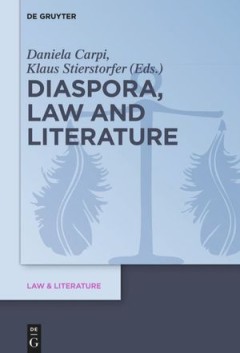
Diaspora, Law and Literature
The well-known challenges of international migration have triggered new departures in academic approaches, with 'diaspora studies' evolving as an interdisciplinary and even transdisciplinary field of study. Its emerging methodology shares concerns with another interdisciplinary field, the study of the relations between law and literature, which focuses on the ways in which the two cultural prac…
- Edition
- -
- ISBN/ISSN
- 9783110485417
- Collation
- 359 halaman
- Series Title
- -
- Call Number
- 800 DIA
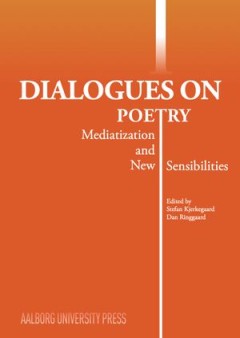
Dialogues on Poetry : Mediatization and New Sensibilities
This book’s inquiry into contemporary poetry takes two directions. The first direction leads to several close examinations of digital, multi-modal and performative poetry, and how perspectives or perhaps just an awareness of a new media landscape recondition our understanding of an old literary genre. The second direction expands into considerations of contextual theories of affect and atmosp…
- Edition
- -
- ISBN/ISSN
- 9788771126501
- Collation
- 370 halaman
- Series Title
- Studies in Contemporary Poetry
- Call Number
- 800 DIA
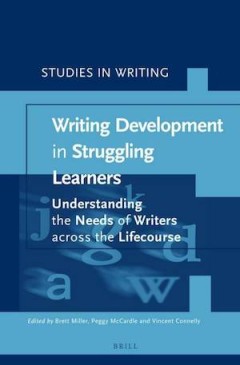
Development of Writing Skills in Individuals with Learning Difficulties : Und…
This volume highlights writing development and its relation to other cognitive domains, such as language and reading, for individuals who struggle to acquire writing proficiency, including those with specific learning disorders (SLD; e.g., dyslexia, dysgraphia, and specific language impairment) which affect writing skills (e.g., handwriting, composition). Writing and writing development are pre…
- Edition
- -
- ISBN/ISSN
- 9789004345812
- Collation
- -
- Series Title
- Studies in Writing Volume: 35
- Call Number
- 800 MIL d
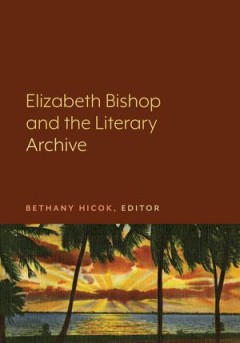
Elizabeth Bishop and the Literary Archive
In a life full of chaos and travel, Elizabeth Bishop managed to preserve and even partially catalog, a large collection—more than 3,500 pages of drafts of poems and prose, notebooks, memorabilia, artwork, hundreds of letters to major poets and writers, and thousands of books—now housed at Vassar College. Informed by archival theory and practice, as well as a deep appreciation of Bishop’s …
- Edition
- -
- ISBN/ISSN
- 9781643150123
- Collation
- -
- Series Title
- -
- Call Number
- 800 ELI
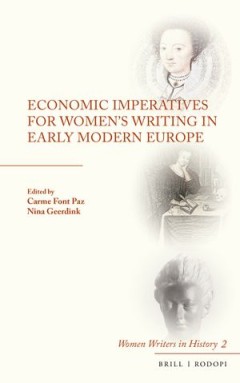
Economic Imperatives for Women's Writing in Early Modern Europe
Economic Imperatives for Women’s Writing in Early Modern Europe delves into the early modern history of women’s authorship and literary production in Europe taking a material turn. The case studies included in the volume represent women writers from various European countries and comparatively reflect the nuances of their participation in a burgeoning commercial market for authors while pro…
- Edition
- -
- ISBN/ISSN
- 9789004383029
- Collation
- -
- Series Title
- -
- Call Number
- 800 PAZ e
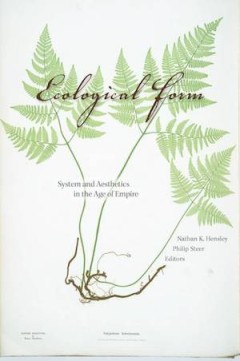
Ecological Form : System and Aesthetics in the Age of Empire
Hensley and Steer look to join the conceptual tools of contemporary ecocriticism with the rich archive of nineteenth century thinking about imperial and ecological intertwinement. This collection of essays draws on that archive to demonstrate the relevance of Victorian thought for current theory and practice. Ecological Form argues that ecology, the empire, and literary thinking were inseparabl…
- Edition
- -
- ISBN/ISSN
- 9780823282128
- Collation
- -
- Series Title
- -
- Call Number
- 800 HEN e
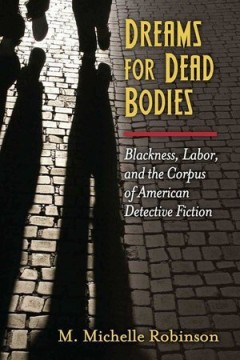
Dream for Dead Bodies : Blackness, Labor, and the Corpus of American Detectiv…
Dreams for Dead Bodies: Blackness, Labor, and the Corpus of American Detective Fiction offers new arguments about the origins of detective fiction in the United States, tracing the lineage of the genre back to unexpected texts and uncovering how authors such as Edgar Allan Poe, Mark Twain, Pauline Hopkins, and Rudolph Fisher made use of the genre's puzzle-elements to explore the shifting dynami…
- Edition
- -
- ISBN/ISSN
- 9780472119813
- Collation
- -
- Series Title
- -
- Call Number
- 800 ROB d
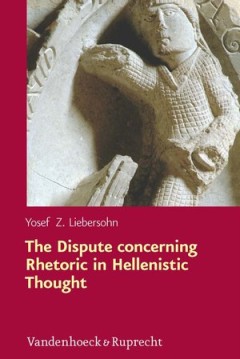
The Dispute Concerning Rhetoric in Hellenistic Thought
This study tries to reconstruct the dispute over rhetoric in Hellenistic thought, by using two main interrelated axes. Firstly, it delineates the exact milieu in which this dispute took place, including locations, dates and persons. Secondly, five main arguments used against rhetoric have been reconstructed, all of which concentrate on rhetoric’s claim to be considered an art.
- Edition
- -
- ISBN/ISSN
- 9783525252949
- Collation
- -
- Series Title
- -
- Call Number
- 800 LIE d
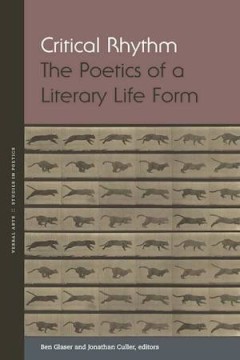
Critical Rhythm : The Poetics of a Literary Life Form
Explores both the theory and practice of rhythm in literature with a focus on nineteenth and twentieth-century poetry. Emphasis on rhythm's role in contemporary literary criticism, including debates about poetic form and genre. This collection intervenes in recent debates over formalism, historicism, poetics, and lyric by focusing on one of literary criticism's most important, most vested, and …
- Edition
- -
- ISBN/ISSN
- 9780823282043
- Collation
- -
- Series Title
- Verbal Arts: Studies in Poetics
- Call Number
- 800 GLA c
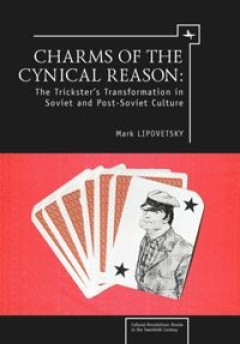
Charms of the Cynical Reason : The Trickster's Transformation in Soviet and P…
The impetus for Charms of the Cynical Reason is the phenomenal and little-explored popularity of various tricksters flourishing in official and unofficial Soviet culture, as well as in the post-Soviet era. Mark Lipovetsky interprets this puzzling phenomenon through analysis of the most remarkable and fascinating literary and cinematic images of soviet and post-Soviet tricksters, including such …
- Edition
- -
- ISBN/ISSN
- 9781934843451
- Collation
- -
- Series Title
- -
- Call Number
- 800 LIP c
 Computer Science, Information & General Works
Computer Science, Information & General Works  Philosophy & Psychology
Philosophy & Psychology  Religion
Religion  Social Sciences
Social Sciences  Language
Language  Pure Science
Pure Science  Applied Sciences
Applied Sciences  Art & Recreation
Art & Recreation  Literature
Literature  History & Geography
History & Geography